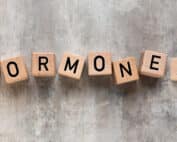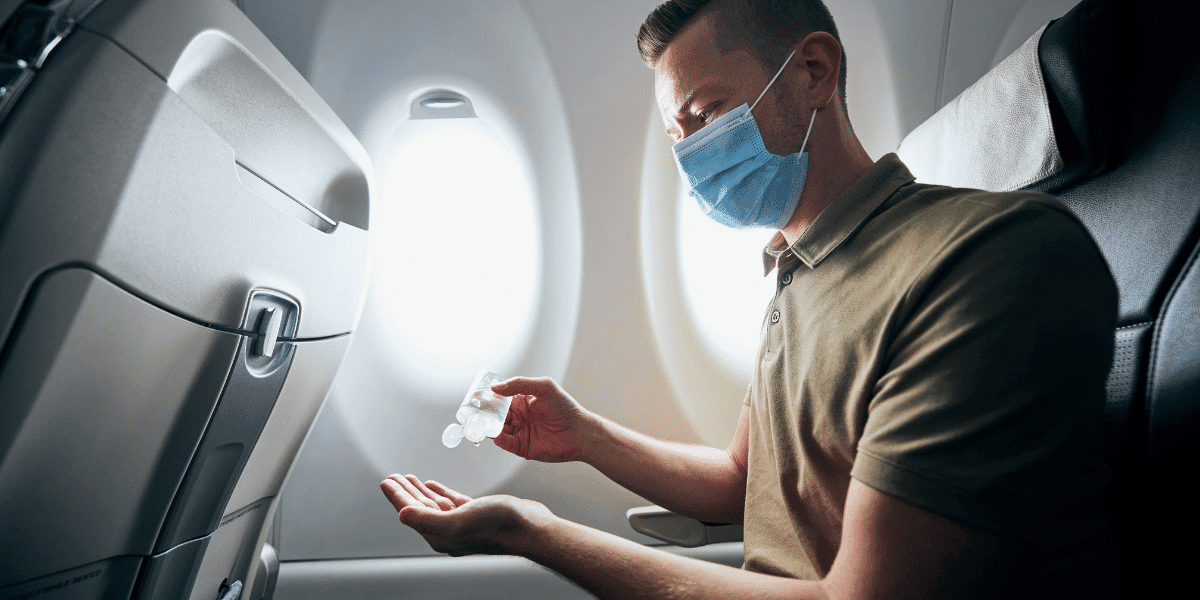5 Critical Ways to Protect Yourself with Air Travel. Exhaled droplets and aerosols can remain suspended in air for extended periods of time. The new virus strains are much more contagious but not necessarily more deadly. Now that people are getting vaccinated, more people may want to consider traveling to escape the cold or hot spots or to just get away for a while. Travel poses some risks. I will share some results of studies so that you can travel and minimize the risk.
How do you decrease the risk of infection in a taxi?
Open a window or windows seems like a common sense move to drive the virus away while in a taxi. Do you know which ones to open and how much? A study in the journal Science Advances simulated different configurations to map how virus-laden airborne particles might flow through the inside of a car. They found the best configurations of window openings to keep both riders and drivers safe from infectious diseases.
- All windows open had the highest air exchange rate. No surprise there
- All windows closed had the lowest air exchange rate. No surprise there either.
- Opening the window next to the driver and next to the passenger is an improvement over all windows closed but does not clear the air as effectively as the following configuration.
- Open the windows that are opposite each occupant – right front and left back. Fresh air can flow in through the back left window to flush out any droplets and out through the front right window and helps create a barrier or “air curtain” between the driver and the passenger.
- Open the windows fully or at least halfway. Cracking the window is not very effective.
- The higher the speed, the better the flow.
What is the best way to mitigate the risk of air travel?
While you may be tired of hearing it, the best way to decrease the risk of air travel is to wear a mask and with the more infective strains, upgrading the quality of your mask or double masking would be recommended. Other things you can do are:
- Minimize the time you are unmasked while eating.
- Turn the air flow nozzle to make an air curtain that will drive droplets down and away.
- Disinfect your surfaces – most airlines will give you a sanitizing wipe.
- Sanitize your hands frequently.
- Keep a distance of 6 feet from people while in the terminal and while boarding and deplaning.
- Limit your movement on board to avoid contact with people.
What is the best seat in a plane?
Studies have shown that illness are most likely to be transmitted only to passengers within one row in front or in back of the infected person. When you get on plane, you will not necessarily know if you are sitting near an infected person, but you can reduce your risk of infection by reducing your contact with people.
- The statistics show that people are more likely to get ill if they sit in an aisle seat. People walk by, they touch surfaces, and passengers in aisle seats will have more frequent contact with other passengers as well as flight staff.
- The window seat is safest because you will have fewer people passing by and fewer people in close proximity. Window seat passengers are less exposed to people walking up and down the aisle.
- On flights lasting 3-5 hours 38% of passengers left their seats once, 24% more than once, but passengers by the window barely left their seat at all which reduced the number of contacts. Less movement, less contact.
Is there anything else I can do to improve my immunity?
Absolutely, your diet, exercise, sleep, how you manage stress and supplements such as Vitamins A, C, D, zinc, selenium, quercetin and probiotics all have a beneficial effect on the immune system.
However, many people don’t realize that the microbiome or bacteria numbers and types in your gut can modify the immune response.
- Prebiotics can have an indirect effect by stimulating the immune system and by feeding beneficial bacteria. This changes the amount and type of beneficial bacteria in the microbiome.
- They also have a direct effect by modulating cytokine production. They can increase the expression of anti-inflammatory cytokines and reducing pro inflammatory cytokines responsible for cytokine storm.
- Prebiotic foods are chicory root, dandelion greens, onions, garlic, leeks, Jerusalem artichokes, under ripe banana, wild blueberries, spinach, asparagus, chia and flax seeds and oats
- Prebiotic supplements are inulin and fructooligosaccharides (FOS).
What do I do if I have been in contact with someone who has tested positive?
First and foremost, get tested. Testing is not perfect so look for signs and symptoms such as shortness of breath, fever, cough, diarrhea, fatigue, muscle aches and signs of illness. The virus has many more signs and symptoms than what was originally thought.
- Monitor your breathing. If you have a pulse oximeter, test your oxygen levels. 95% or above is good, less than 90% is a danger zone and you should seek help immediately. Be sure to take off your nail polish when measuring.
- Discuss with your doctor whether or not you are a candidate for monoclonal antibodies.
- While there are no double blind controlled studies that show supplements prevent or treat coronaviruses, the following are some of the most important that have been shown to optimize your immune system. Discuss supplements with your doctor as some may be helpful and do no harm such as:
- Vitamin D -If you have been taking Vitamin D all along, continue to take it. There is some evidence that if you have not taken it, taking 50,000 IU a day for 3-7 days may help prevent severe infection.
- Vitamin A 5,000 – 25,000 IU but no more than 10,000 if you are pregnant.
- Zinc chelate 30-50mg
- NAC otherwise known as N acetyl cysteine 500 mg twice a day
- Probiotics and prebiotics
- Vitamin C to bowel tolerance – too much will give you loose stools or diarrhea or stomach upset
- Quercetin 500 – 1000 mg daily.
- Optimize sleep. Melatonin 3-5 mg is an antioxidant ant inflammatory and immune modulating hormone that will help you sleep and getting a good night’s sleep is essential for healing and aiding your immune system. Melatonin may also help reduce lung injury during viral infections.
- Raise your body temperature. Sauna or hot baths or warm towels to raise body temperature for about 20 minutes followed by a cold shower may enhance the immune response. Low interferon occurred in patients with severe illness and high amounts in people with mild to moderate disease. Raising your body temperature can stimulate the production interferon and monocytes, immune cells that fight infection.
5 Critical Ways to Protect Yourself with Air Travel Conclusion:
While the pandemic is far from over, now is not the time to let your guard down. Keep yourself and your loved ones safe. If you need further assistance on how to best maintain or optimize your health, seek the advice from an experienced, well trained functional medicine doctor like Lorraine Maita, MD at HowToLiveYounger.com






She is a recognized and award-winning holistic, functional, integrative and anti-aging healthcare practitioner, speaker and author, and has been featured in ABC News, Forbes, WOR Radio and many media outlets to spread the word that you can live younger and healthier at any age.